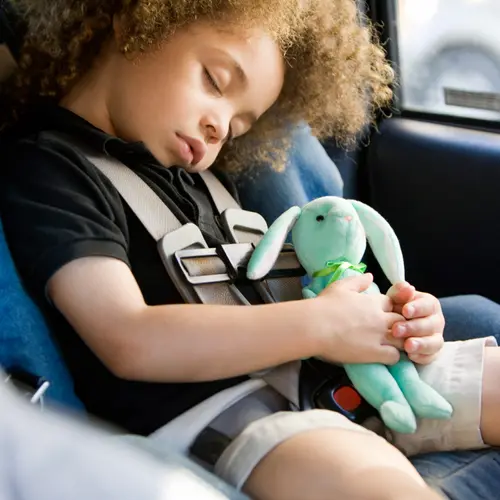No matter where you go in our country, all you need to do is look around to see that the obesity epidemic is a reality for Americans of all ages even our children. According to the CDC, 8 million kids in the United States are overweight or obese -- a number that has doubled since 1970.
There is no single reason for the explosion of childhood obesity. But clearly, more screen time (in front of both the television and the computer); a lack of physical activity at home and in school; and a diet that has too many (and the wrong kind of) calories have all contributed to the problem.
Consequences of Obesity
The odds of an overweight child becoming an overweight adult are 70%. Not only are these children likely to continue to gain weight, but chances are good that their weight will seriously affect their physical and emotional health.
The psychological consequences are often seen to be just as significant as the physical health problems. Overweight kids tend to have poor self-esteem and see themselves as less valuable than their normal-weight peers.
The likelihood that a child will become overweight may be determined even before he/she is even born. If a mother is obese during her first trimester of pregnancy, her child is far more likely to be obese by age 4, a recent study found.
Overweight and obese kids are at higher risk of developing adult health problems like type 2 diabetes, sleep apnea, depression, heart disease, and high cholesterol. And as the kids get heavier, their health problems get worse.
Study after study confirms the obvious -- that being overweight can hurt more than just your looks. Just in the past month, several studies have researched the perils of obesity and overweight in kids. Among the findings:
- Middle school students who increase their physical activity have fewer symptoms of depression.
- There's a strong link between obesity and how much time school-aged kids spend in front of TV and computer screens.
- The hearts of extremely obese kids undergo a structural change that puts them at increased risk for heart attacks.
What's a Parent to Do?
If you are an overweight woman who is trying to get pregnant, the Weight Loss Clinic is right where you need to be. Managing their own weight and learning about lifestyle changes enables parents to encourage healthy behaviors.
In fact, the most important thing parents can do to make sure their children avoid obesity is to be role models for healthy behaviors -- which means practicing what they preach.
Here are some tactics to help you help your kids eat healthfully:
- Stock the refrigerator and pantry with healthy options -- fresh fruit, vegetables, low-fat dairy products, plain cookies, light frozen treats, and whole-grain cereals.
- Get your kids involved with food preparation. It can be as simple as making their own fresh fruit popsicles or blenderizing smoothies.
- Forget about urging them to join the "clean plate club." Instead, try to teach mindful eating that recognizes hunger and fullness.
- Kids often eat and/or drink because they are bored. Plan out healthy snacks, and give them water in between if they're thirsty. Liquid calories really add up, whether they're from fruit juice or soda. While they satisfy thirst, they do little to affect hunger or fullness.
- Parents need to set guidelines about screen time so that kids don't sit idle or engage in "eating amnesia" for hours on end.
- Make mealtimes meaningful. Enjoy one another's company as you all sit around the dinner table, without distractions from telephones or televisions.
- Try not to use food as a reward or punishment. It sets up a pattern of restrictive eating and unhealthy relationships with food.
- Limit excess calories from highly processed and high-fat foods.
Kick Them Off the Couch
Get your kids to go outside and play, ride their bikes, swim, or simply run around with their friends in the neighborhood. Encourage them to find activities that are fun.
Plan family activities and vacations that include physical activities that everyone can enjoy together. And invest in games and equipment that will foster physical activity, such as:
- Twister
- Hula hoop
- Jump rope
- Bicycle
- Frisbee, baseball, soccer, football
- Trampoline
If your children need to lose weight, support them, and recognize that growing children should not diet. Instead, they should increase their activity while eating sufficient nutrients and calories for growth and development.
Help your kids make small, gradual changes that can become permanent. Reducing calorie intake by 60-100 calories per day can add up to substantial results.
You can make a difference. From the foods you serve to your exercise patterns, you can influence your children's lifetime habits. And an ounce of prevention is definitely worth a pound of cure.
We did not become an overweight nation overnight, and there is no quick fix. Start making those small changes that will make a big difference. Do your part to help your kids become healthy adults.


